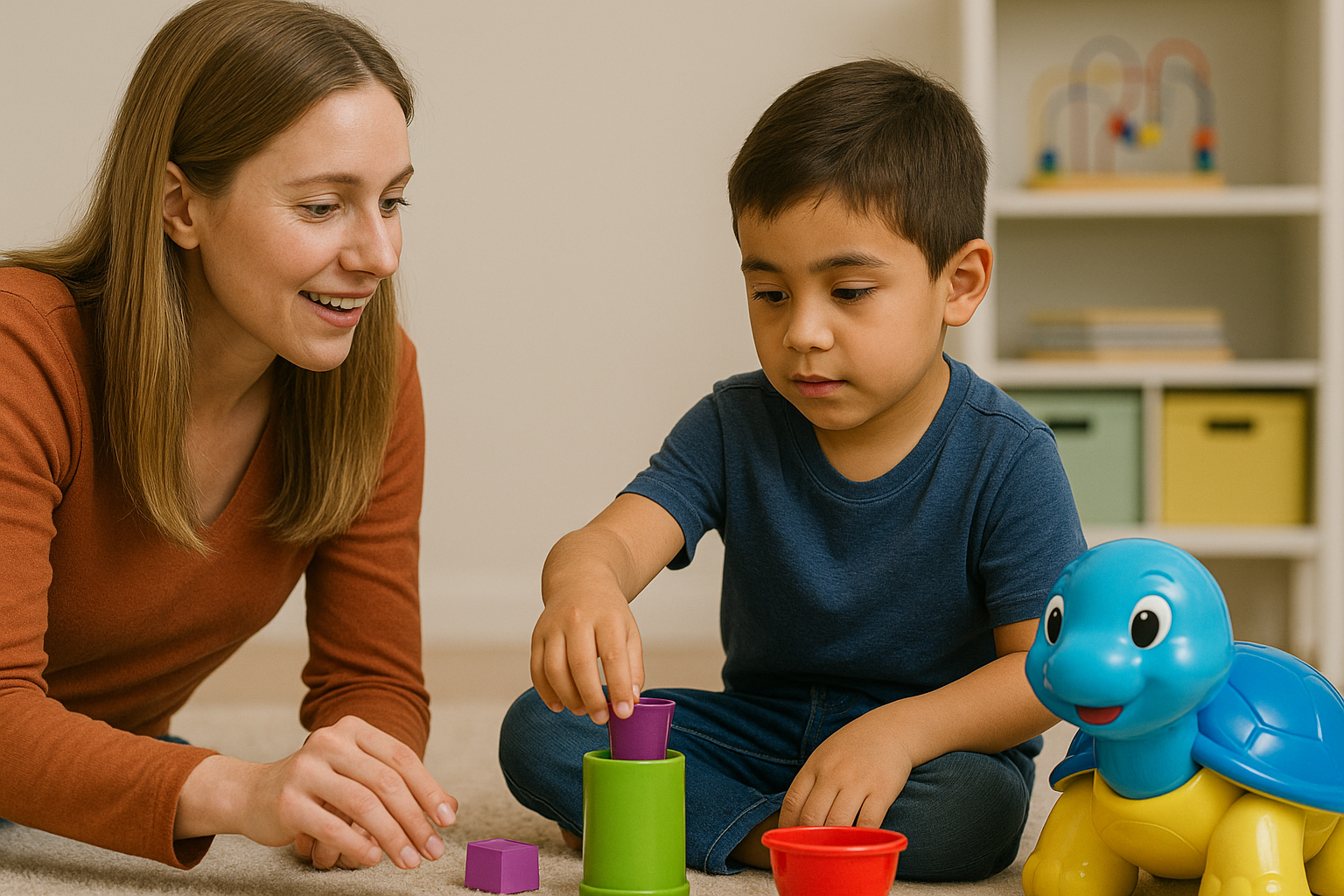Play is a child’s first language. It’s how they explore the world, express their thoughts, and connect with others. For children on the autism spectrum, play isn’t just a leisure activity—it can be a powerful tool for growth, healing, and communication.
While autism can affect how a child engages in play, it doesn’t diminish its importance. In fact, play therapy and purposeful play experiences can offer transformative benefits in emotional, cognitive, and social development. The key is understanding how to use play as a bridge—not only for skill building, but for connection.
1. Play as Communication
Many children with autism experience challenges with speech and language, but that doesn’t mean they don’t want to express themselves. Through play—whether with toys, art, or pretend scenarios—children can share their thoughts, needs, and emotions in ways that feel natural to them.
Therapeutic play might include:
-
Using puppets or dolls to act out feelings
-
Story-based play to encourage expression
-
Interactive games that promote gestures, signs, or sounds
These activities help children find their voice—whether verbal or nonverbal.
2. Social Skills in Action
Play creates a safe, low-pressure environment for children to practice social interaction. Whether it’s learning how to take turns, making eye contact, or understanding another person’s perspective, play offers real-life practice in a supportive setting.
Structured play sessions can help children with autism:
Therapists often use role-playing games, peer modeling, and guided playdates to gently encourage these skills.
3. Emotional Regulation and Sensory Integration
Many children on the spectrum have heightened or under-responsive sensory systems. Play activities tailored to their sensory needs can help calm or stimulate their nervous system, improving focus and reducing anxiety.
Examples include:
-
Sensory bins filled with rice, beans, or sand
-
Water play for soothing tactile input
-
Swinging, jumping, or climbing to support balance and coordination
These activities help children learn how to manage sensory overload or seek sensory input in healthy ways, improving emotional regulation over time.
4. Motor Skills Development
Play can support both fine motor skills (like holding a crayon or buttoning a shirt) and gross motor skills (like running, jumping, or climbing). Through activities like building with blocks, playing with clay, or using ride-on toys, children naturally develop coordination, strength, and body awareness.
Therapeutic play helps them practice these movements in fun and functional ways that translate into daily life tasks.
5. Imagination and Flexibility
Children with autism often find comfort in routines and predictability. While this can be a strength, it can also make adapting to new situations challenging. Imaginative play—like dress-up, pretend cooking, or storytelling—encourages mental flexibility, creativity, and open-ended thinking.
With the right support, children can explore new roles, test ideas, and begin to see that change doesn’t have to feel scary—it can be fun.
Creating a Play-Friendly Environment
You don’t need expensive toys or a formal therapist to make play beneficial. What matters most is intentionality and consistency. To make the most of play:
-
Follow your child’s lead. Let them show you how they like to play.
-
Create routines that include quiet and active play.
-
Offer choices that match their interests and sensory needs.
-
Use everyday items—blankets, boxes, water, music—to spark engagement.
-
Celebrate small steps. Progress in play is progress in life.
Final Thought: Play Is a Pathway
For children with autism, play isn’t a luxury—it’s a lifeline. It opens doors to language, connection, independence, and joy. When we make room for play—purposeful, therapeutic, inclusive play—we affirm that every child, regardless of ability, deserves the freedom to explore and the support to grow.
By recognizing the power of play, we’re not just meeting children where they are—we’re walking with them toward who they’re becoming.

